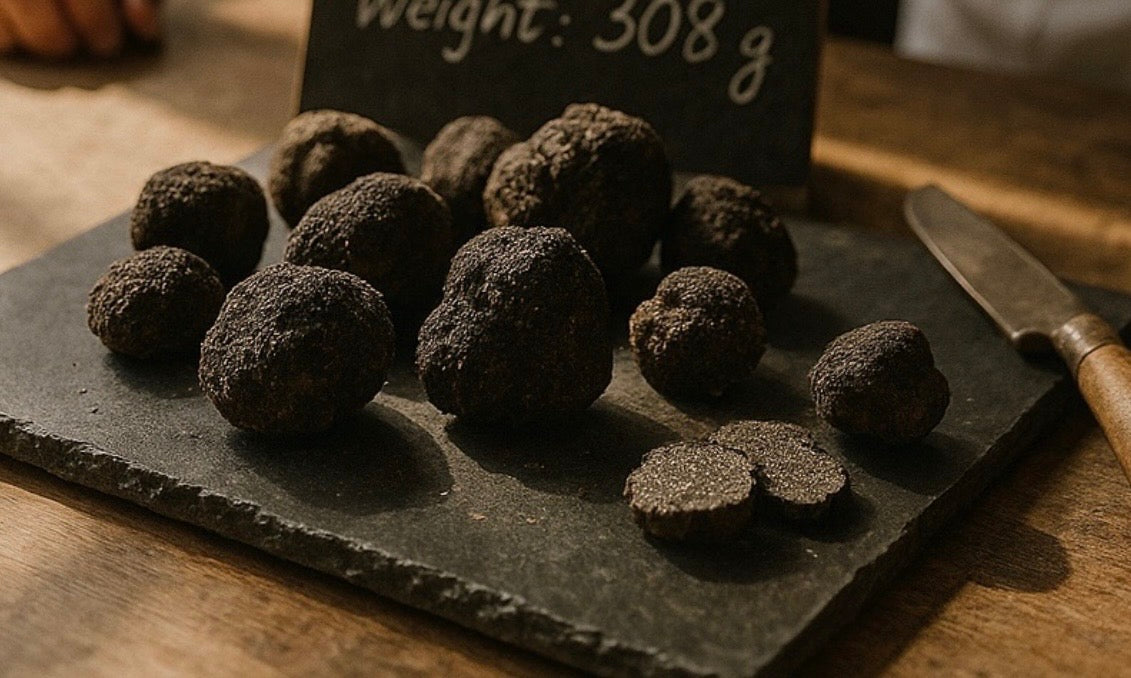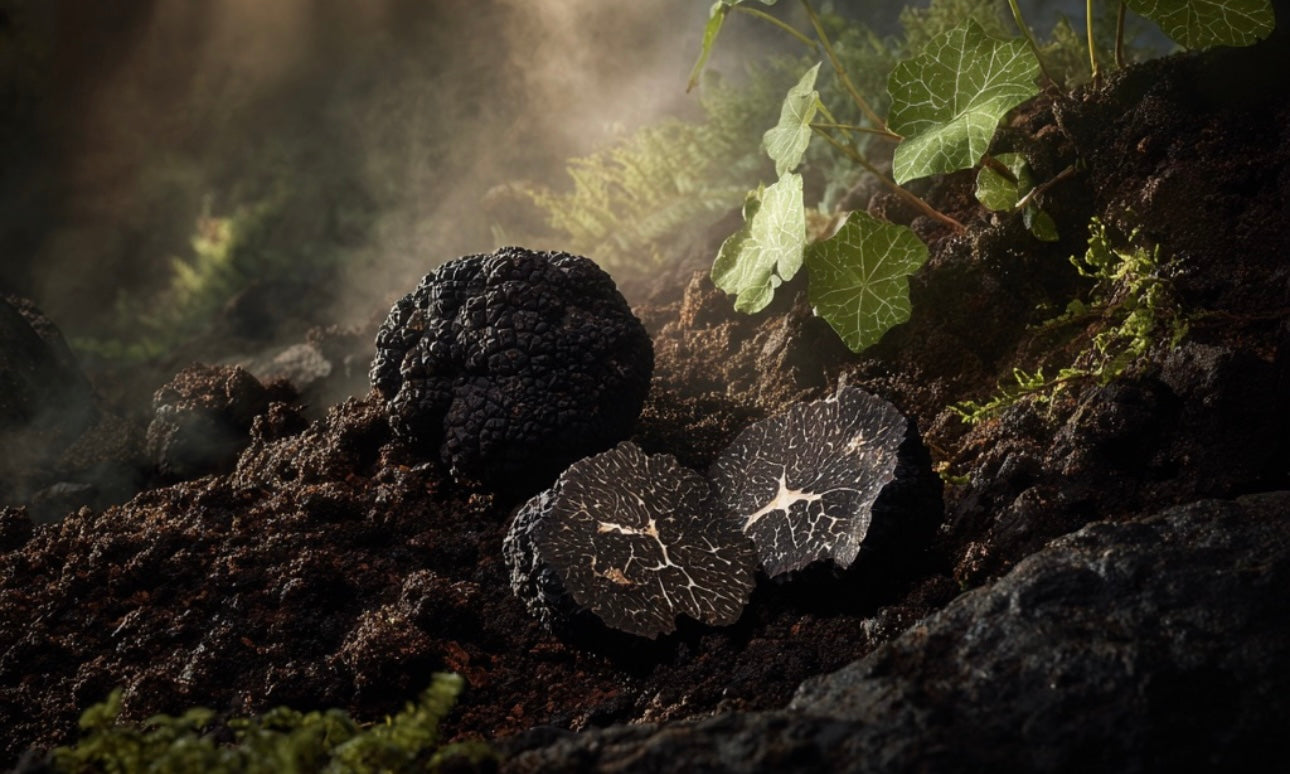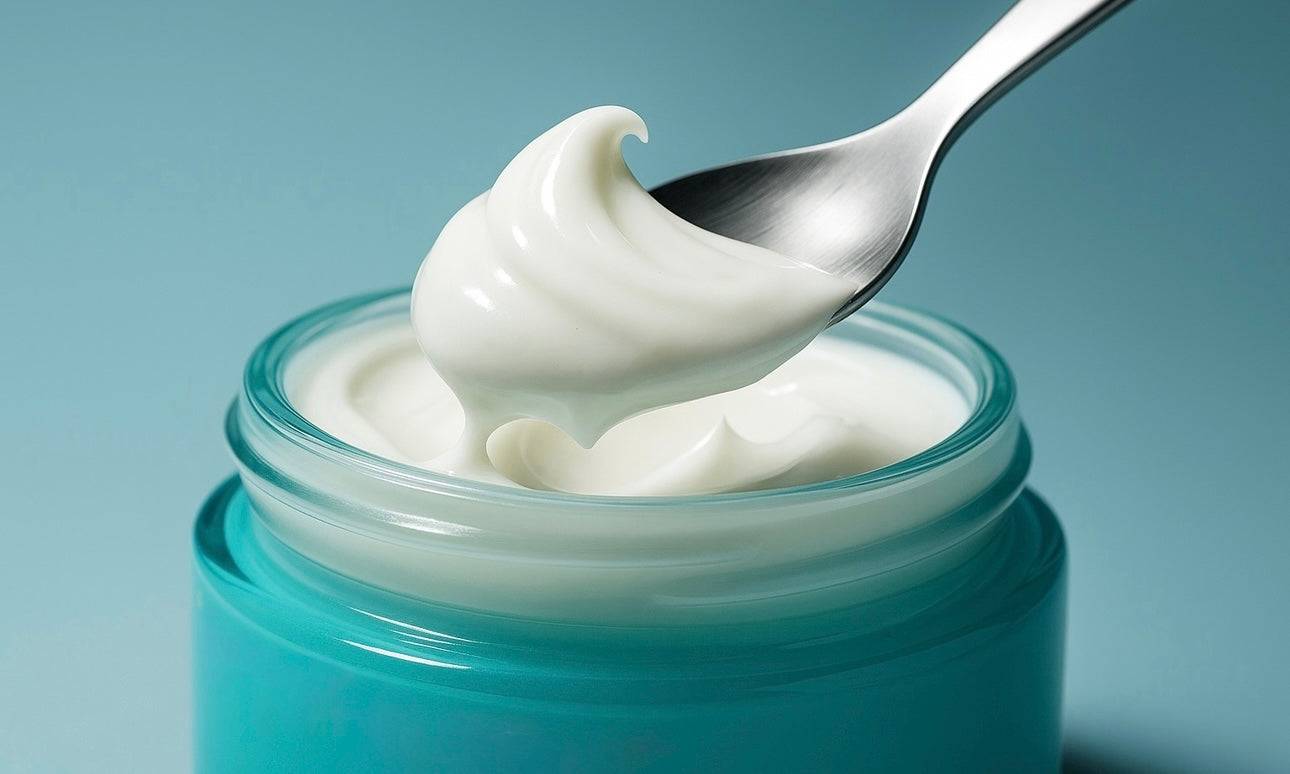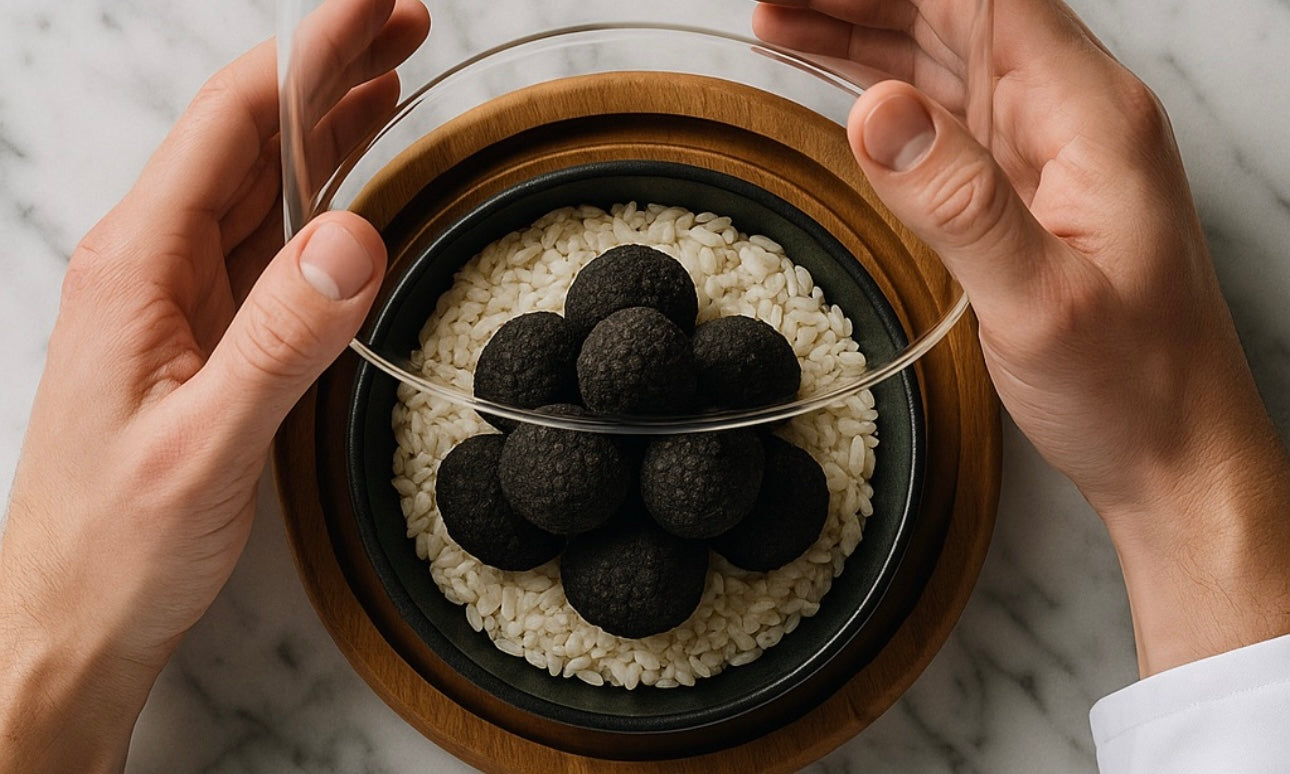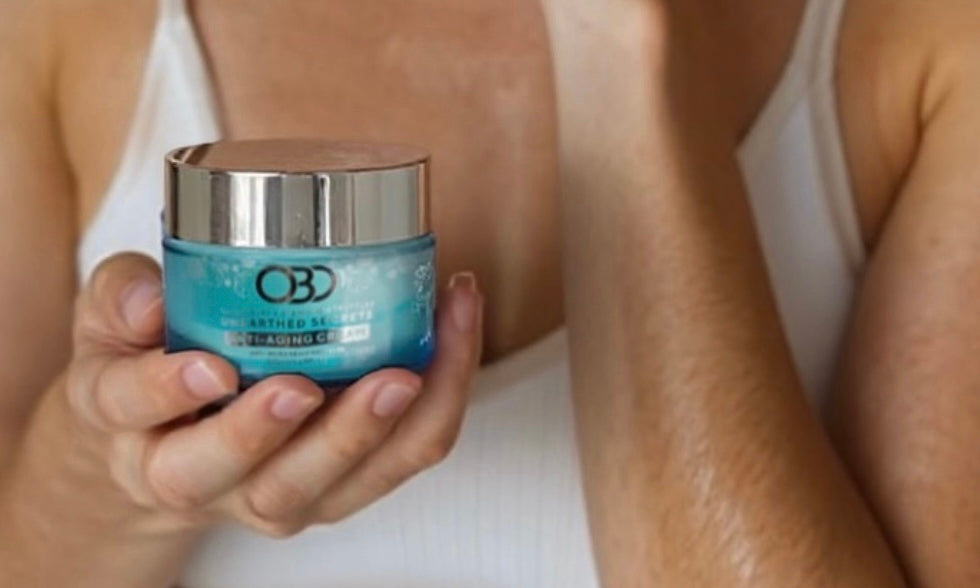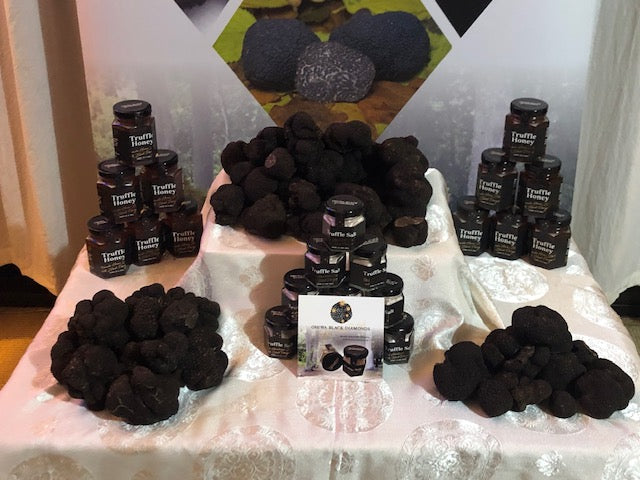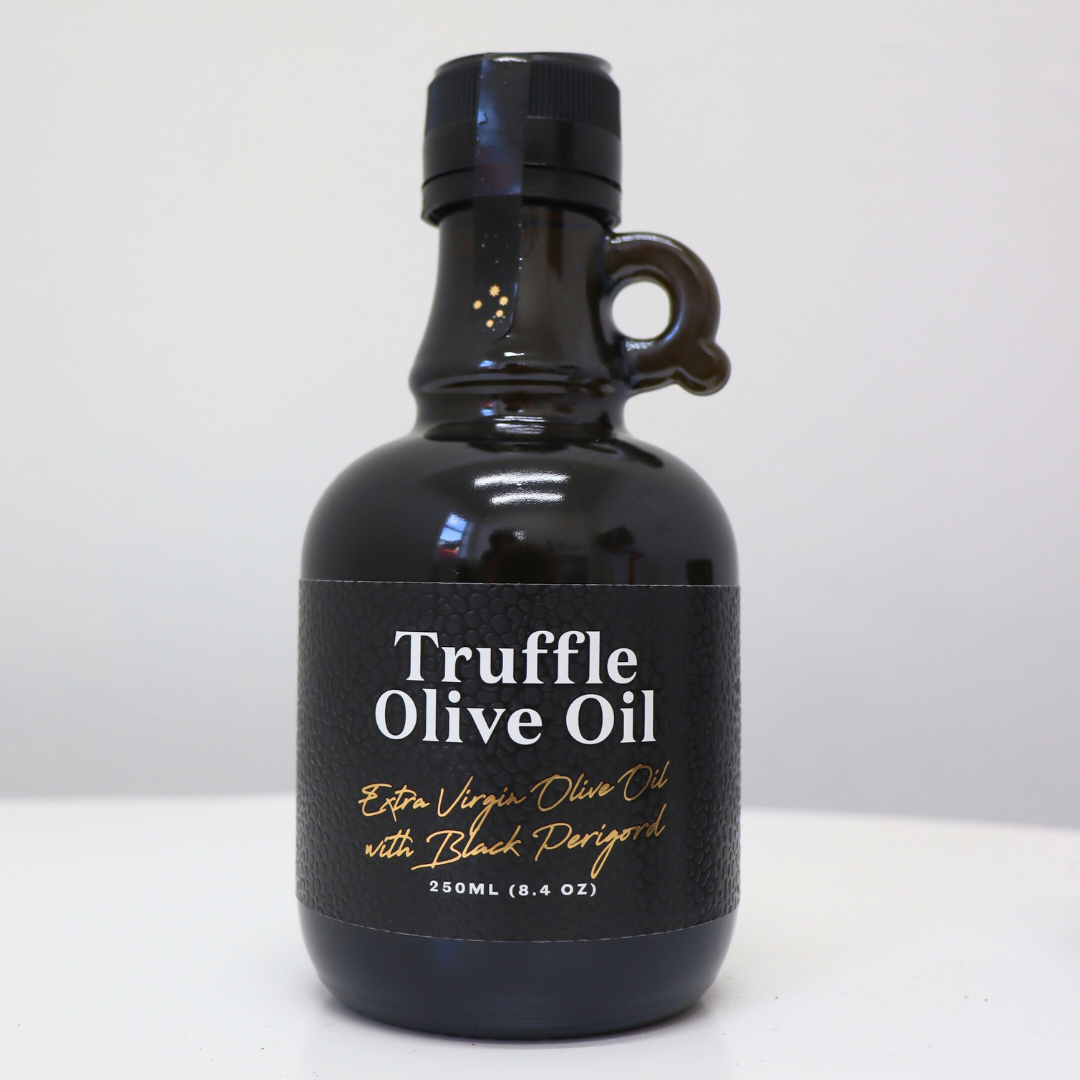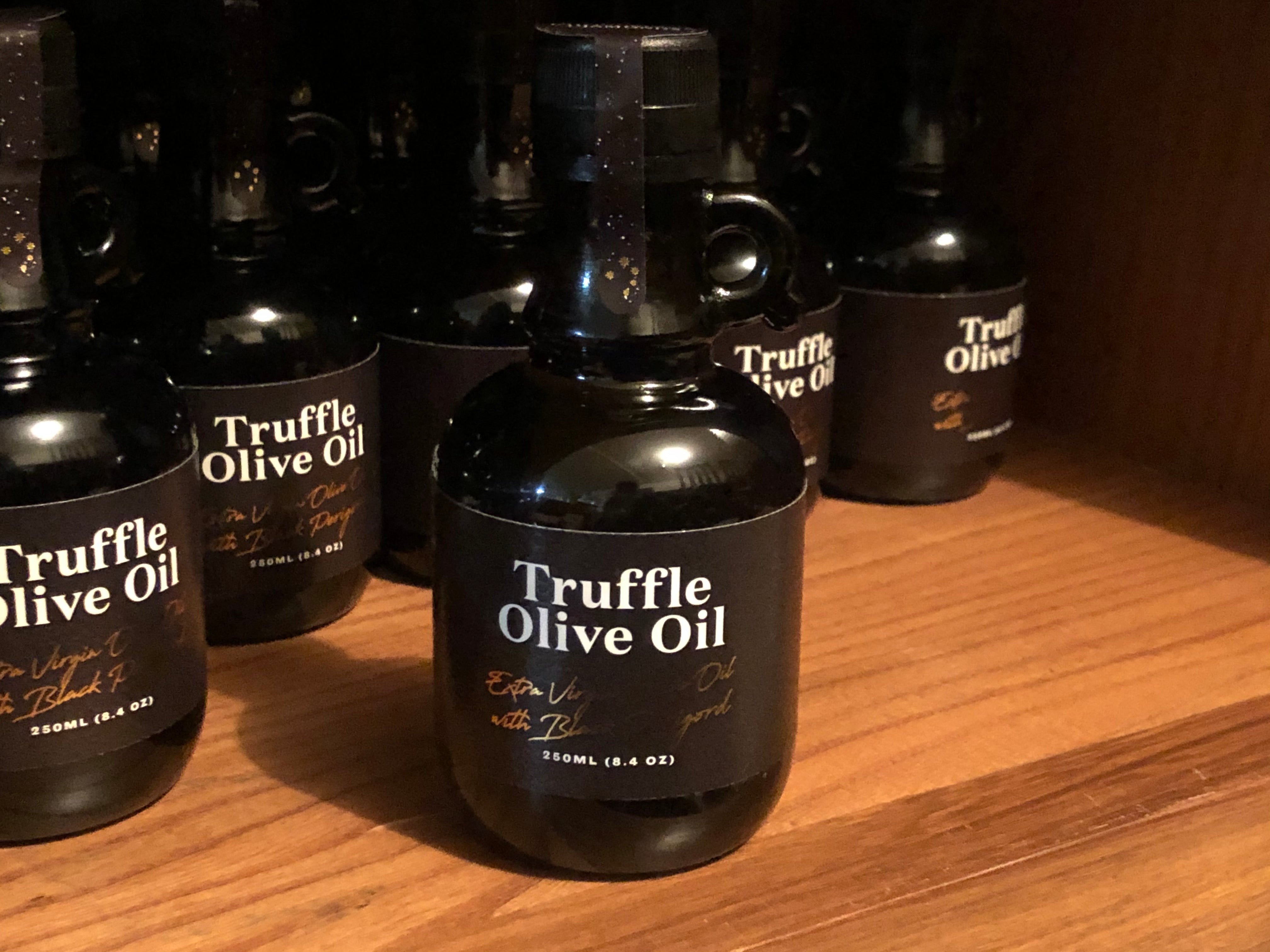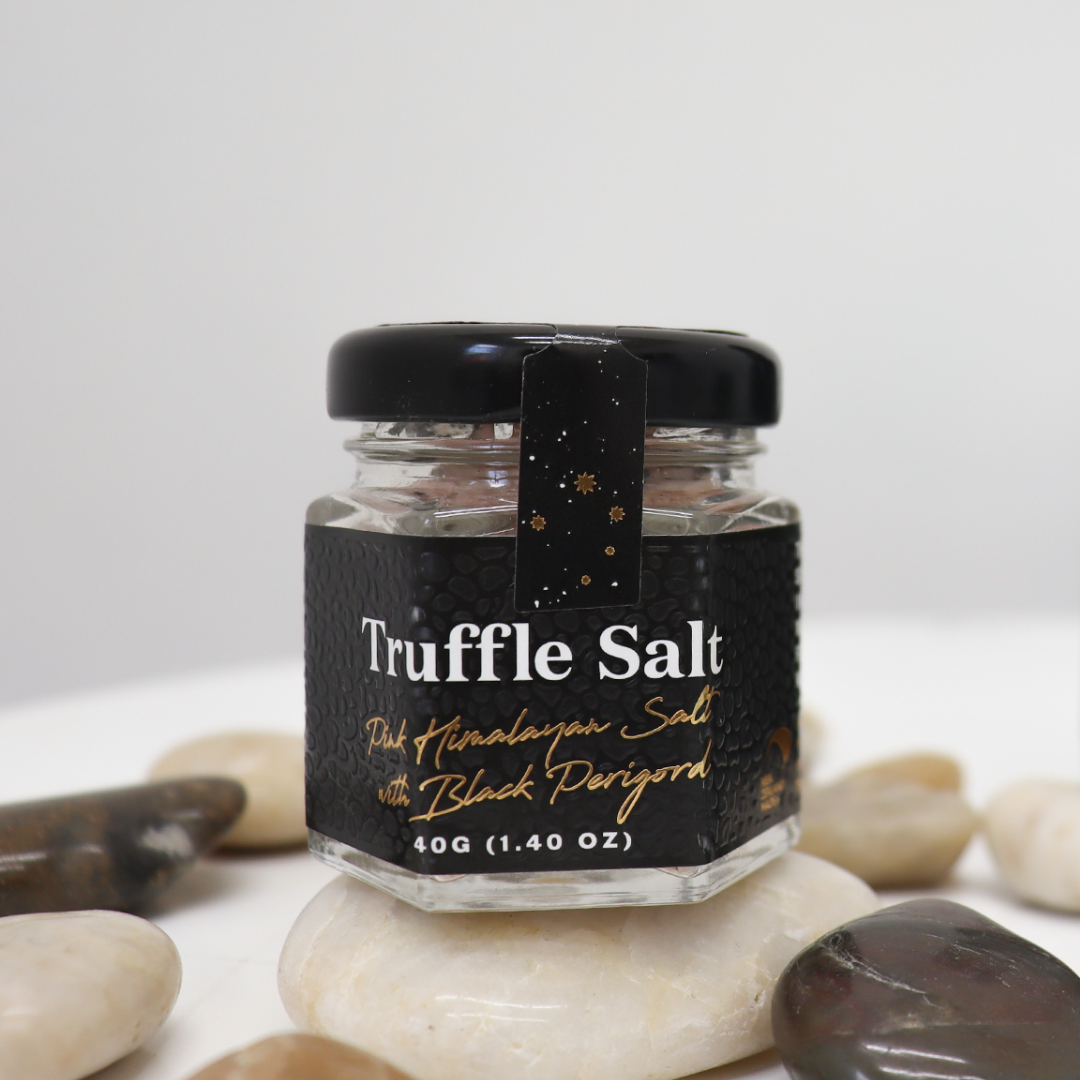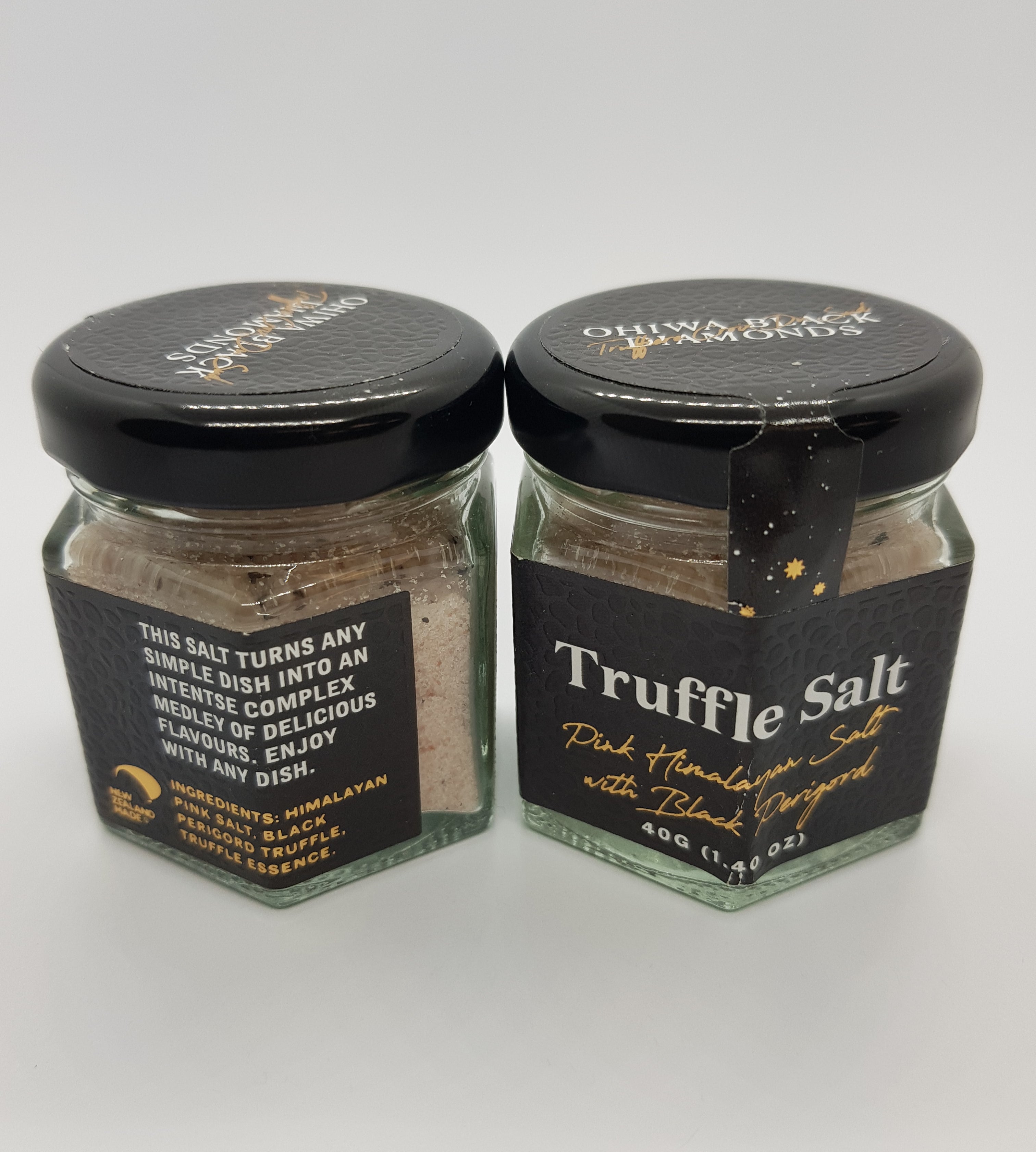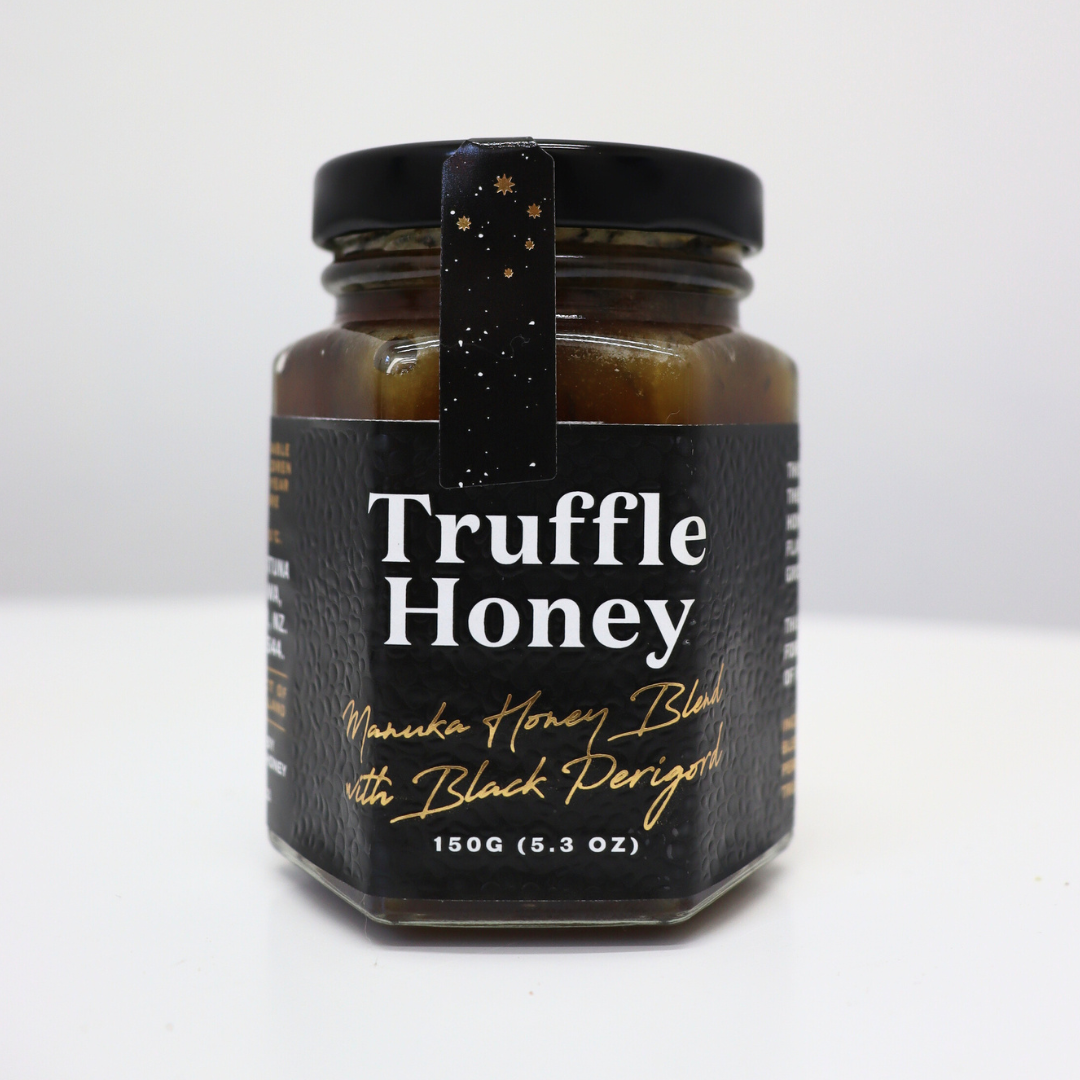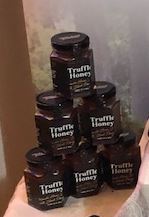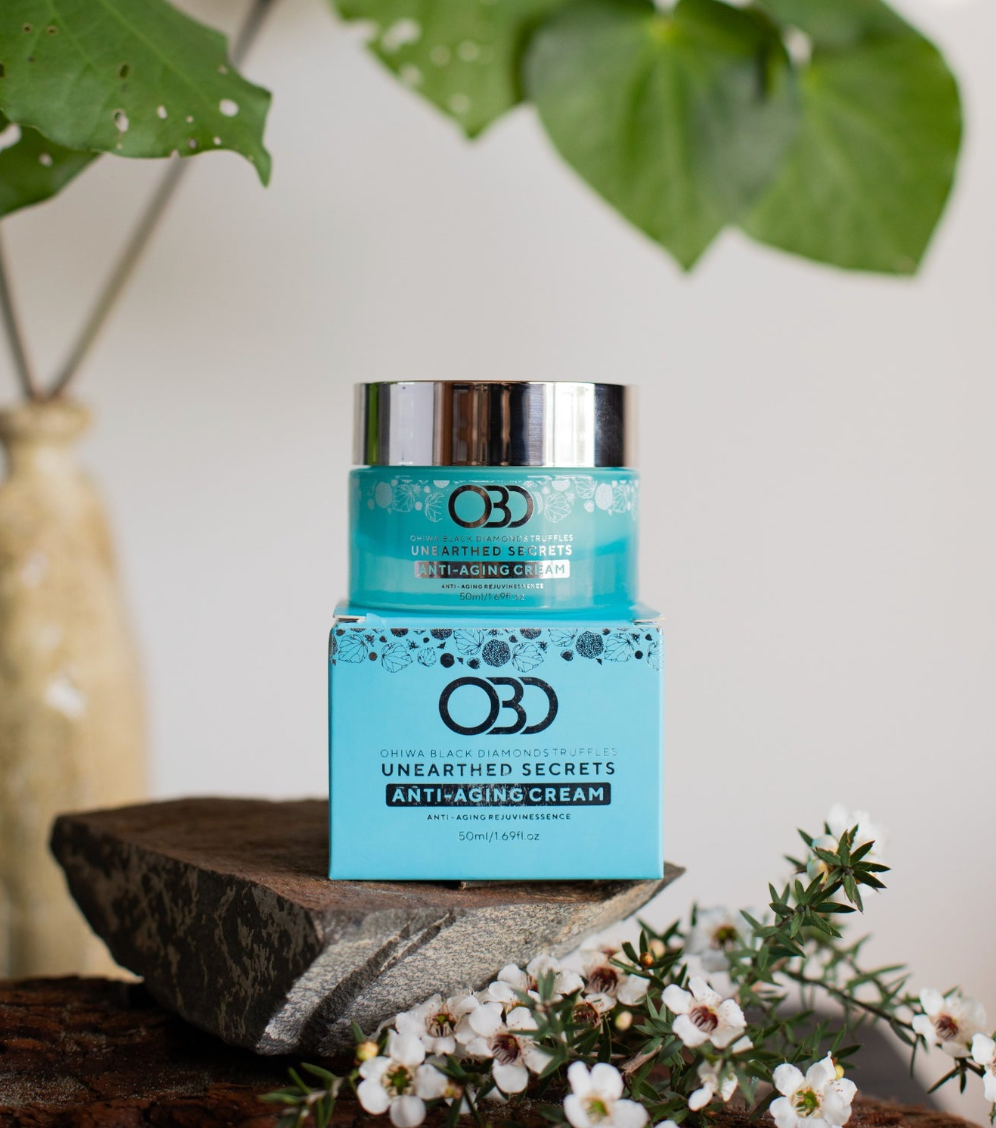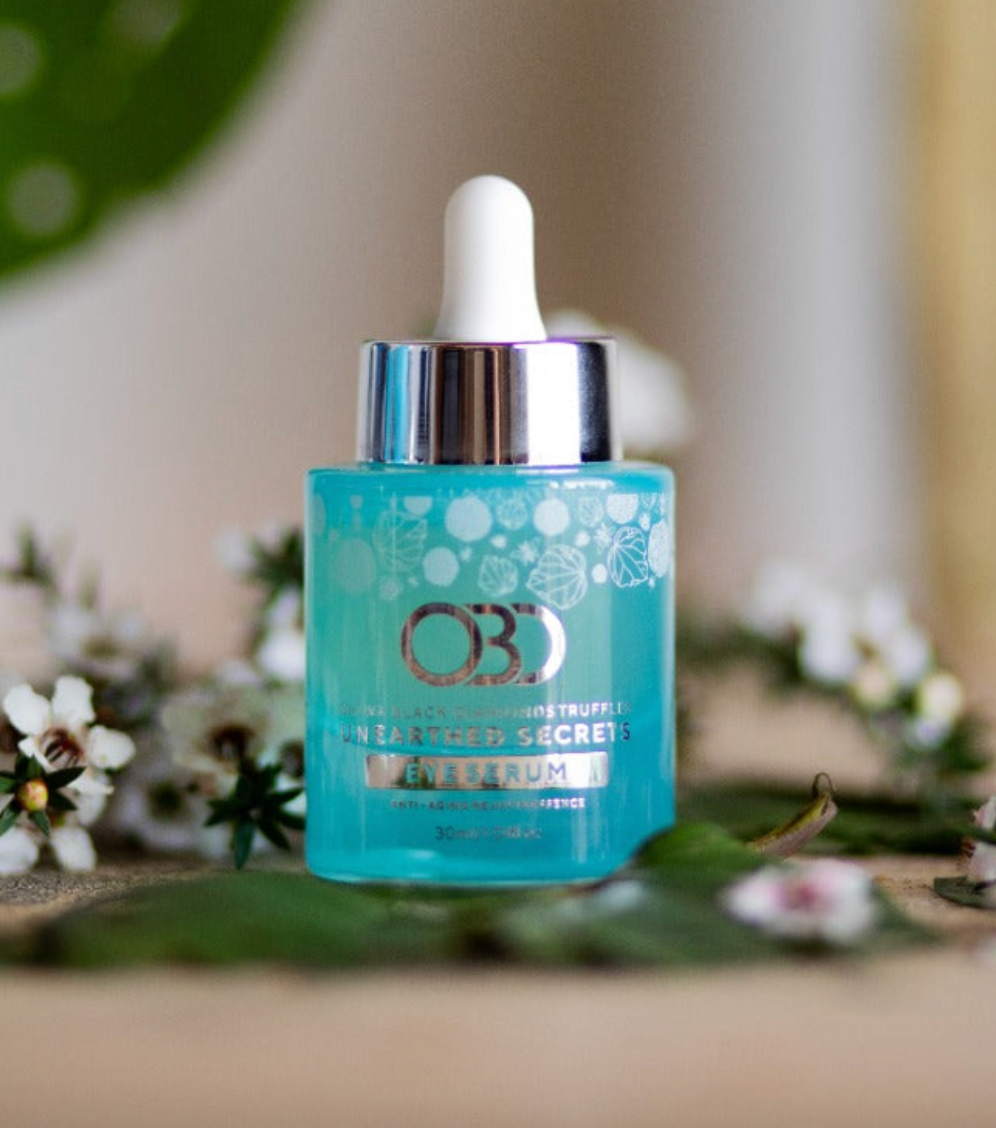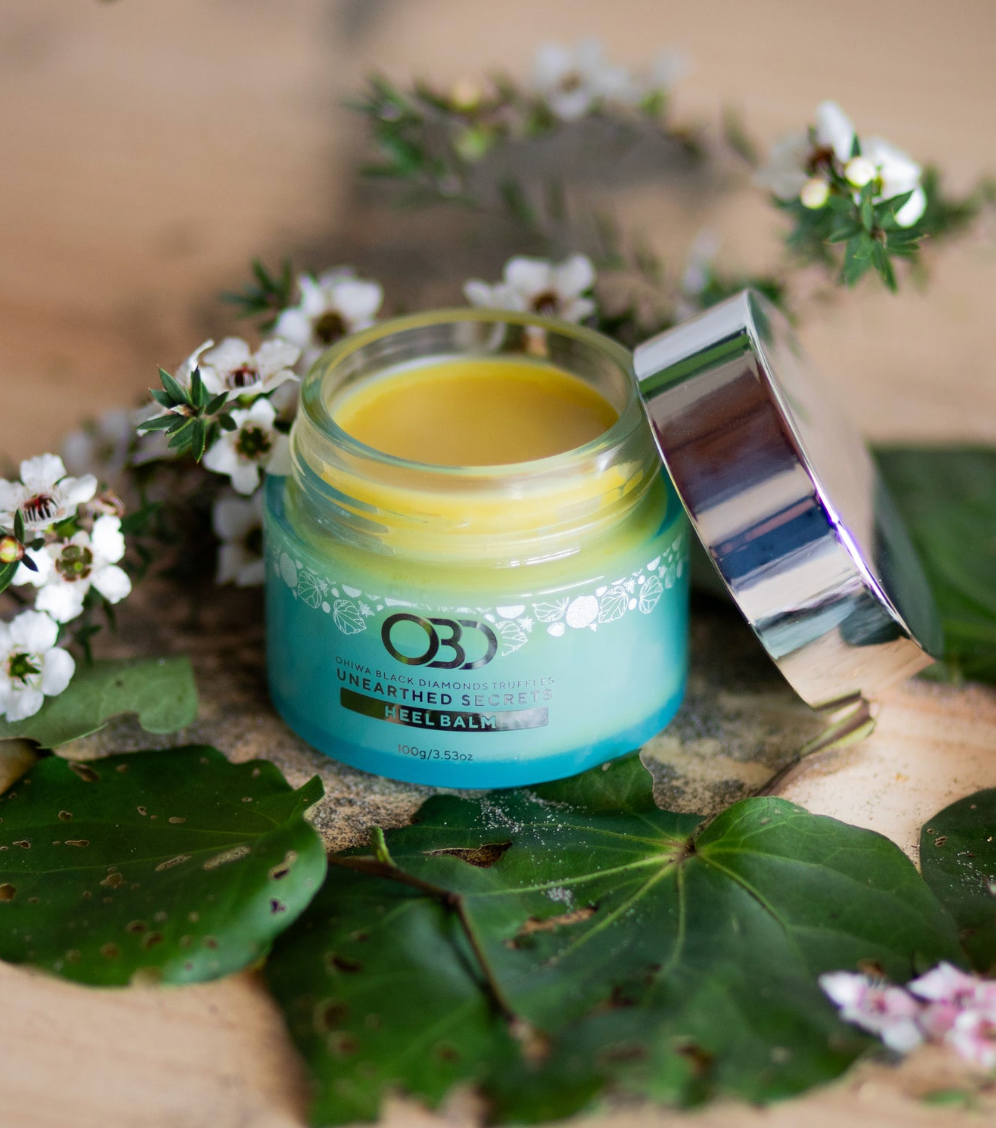Meet the Founders
By Annette & Matiu
Ohiwa Black Diamond Truffles
They say truffles are nature’s most mysterious fruit; hidden, sacred, born of the earth’s silence. And
according to ancient mythology, they were first formed when a bolt of lightning struck the soil. That
image has always stayed with us. Because in many ways, that’s exactly how our story begins -
something rare and unexpected, called to life by the land itself.
We didn’t set out to become truffle farmers. In fact, we didn’t even know we had a truffière when
we bought this land in Ohiwa in 2011. The previous owners, the Bassets, simply told us we were the
“right people” for it and we’ve come to understand why. What we found here wasn’t just a property.
It was a legacy.
The land we now call home had already been part of something much bigger. Back in the 1980s, the
Pitta family dreamed of growing truffles here, on a place once known as the Butterfly Cottage. In
1988, with support from Dr Ian Hall and Crop & Food NZ, they planted a test block of inoculated
oak and hazelnut trees and named it Truffière Croix du Sud, after the Southern Cross constellation
that rises directly above the field.
But truffles take patience. Eleven years passed, and no truffles appeared. The Pittas sold the
property to the Bassets, who - not long after - discovered their first black truffle in 1999. It was the
second confirmed truffière in the North Island. Since then, this tiny grove has quietly held its place
in global lectures and academic studies as a key chapter in New Zealand’s truffle industry.
When we moved here, we were welcomed by the Ohiwa community with food, kindness, and open
arms. But we also encountered the other side of rarity; envy, trespassing, people trying to take
samples of our soil, bringing dogs uninvited. We didn’t talk much about it, but it shaped how we
saw the industry; a lot of secrecy, a lot of gatekeeping.
That’s not who we are.
We’ve always believed knowledge should be shared, especially when it can uplift others. So we
reached out not just to other growers, but to the government - to advocate for Māori landowners
and others who carry whenua but lack the financial means or support to begin. Truffle growing
shouldn’t be for the elite few. It should be for those who care deeply for the land.
Since taking over, we’ve planted over 12,000 truffle seedlings, with a goal of reaching 30,000. And
while our yields grew, so did our vision not just for fresh truffle, but for something longer-lasting.
When the market became uncertain, we created our own signature products: truffle oil, honey, and
salt. The classics, done properly, with patience and pride.
We’ve also helped other truffle growers who felt forgotten by the association. They come to us now,
and we do our best to support them, to share what we’ve learned and to buy their truffles for our
products too. That’s how community is supposed to work.
But it hasn’t always been smooth. In 2014, just as our harvest peaked and our products gained
momentum, disaster struck - literally. An aerial top dresser meant for our neighbour dumped tonnesof organic fertiliser over our truffière. Not once, but three times. It killed everything. Spores lay
dormant. No truffles. No answers. And no support from the industry.
We were told we couldn’t recover. That no one had ever come back from this. But we refused to
accept that. We reached out to France, Italy, Spain - anyone who would listen. Slowly, painfully, we
began again. It cost us over $130,000 and years in court. But by 2019, our truffles had returned. Our
grove, now 38 years old, is still producing.
In the quiet of those years, we dug deeper. What is it about the truffle that has captivated kings,
chefs, and healers for centuries? We sent samples to Massey University. The results were beyond
what we imagined: truffles grown in our soil showed anti-inflammatory, immune-boosting,
organ-repairing, and even cancer-fighting properties. That’s when we knew: this wasn’t just a
food. This was medicine. A gift. A secret beneath the surface, waiting to be unearthed.
From that moment, Unearthed Secrets, our skincare line was born. Combining Black Périgord
truffle with kawakawa and mānuka UMF+5, it became our next evolution. Not just something to
taste but something to wear, to feel, to trust. We're now exploring wellness supplements too, always
guided by the rongoā of this land and the science that supports it.
We’re still a small team. We still do the work with our hands. We’ve formed partnerships with
likeminded creators from cheese to caviar, soy sauce to skincare. We’re just getting started.
But what’s never changed is this: everything we do is for the land, the story, and the people who
walk it with respect.This is a living legacy. A lightning bolt beneath our feet. A secret whispered by
the soil.
And we’re here to protect it and to share it.
Ohiwa Black Diamond Truffles
Crafted by hand. Rooted in truth. Unearthed with care.
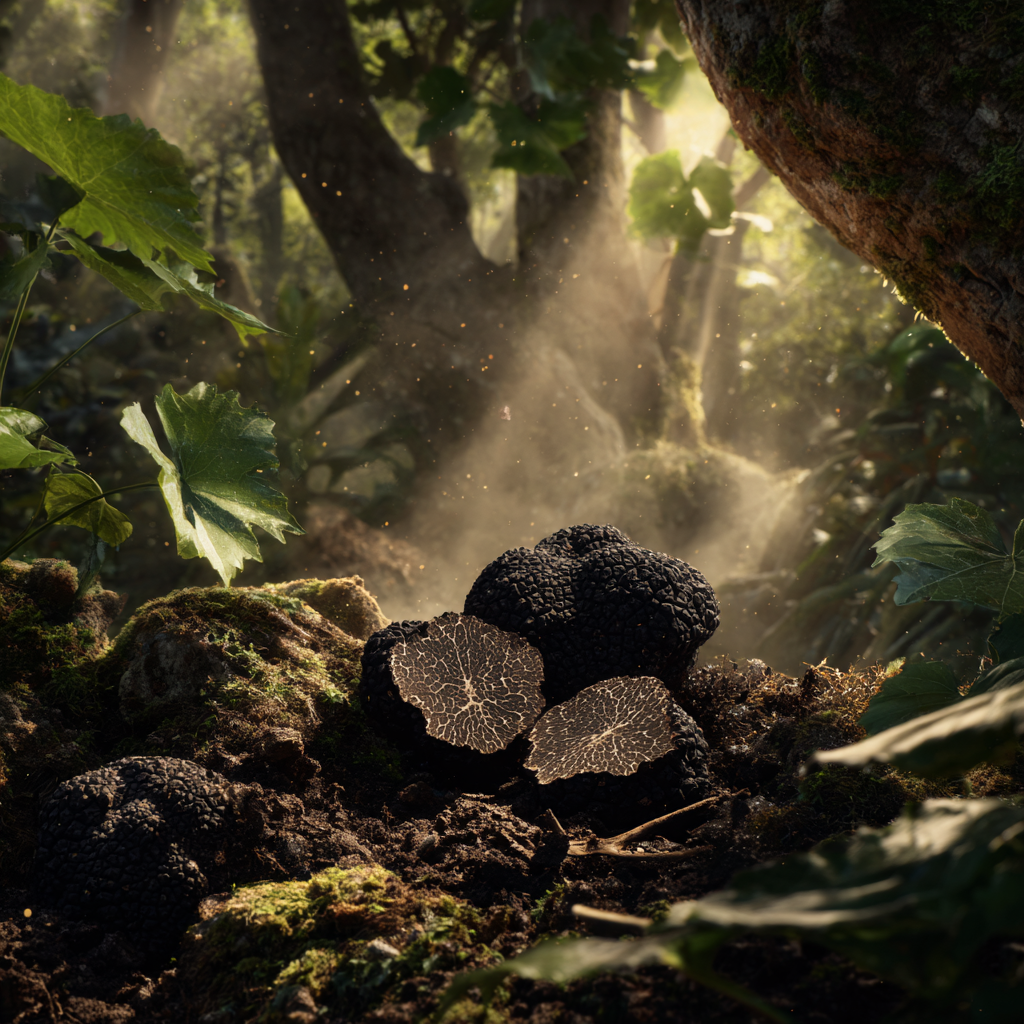
our origins
Unearthed Secrets, Rooted in New Zealand
Ōhiwa is a sacred place - rich in volcanic minerals, dense native forests, and cultural wisdom. It's here that our truffles grow beneath the soil, absorbing nutrients over many seasons before harvest. Our founders were driven by the desire to share this hidden luxury with the world, not through mass production, but through small-batch, deeply intentional products.
By combining culinary innovation with ancient wellness rituals, Ōhiwa bridges the natural world with modern living.
dual craft philosophy
Two Realms. One Origin.
At Ōhiwa, we honour the duality of nature, its ability to both nourish and restore.
From chefs to skin therapists, our products are designed to enhance daily rituals in two forms:
Ōhiwa Kitchen
Gourmet truffle oils, salts, honeys and whole truffles, used by top chefs and food lovers alike.
Ōhiwa Beauty
Truffle-rich skincare powered by New Zealand botanicals, Rongoā wisdom, and scientific formulation.
We treat both verticals with the same commitment to quality, sustainability and storytelling.

Our Story is Still Being Written
Be part of our next Chapter. Whether through taste, touch, or gift - Ōhiwa is made to be shared.

